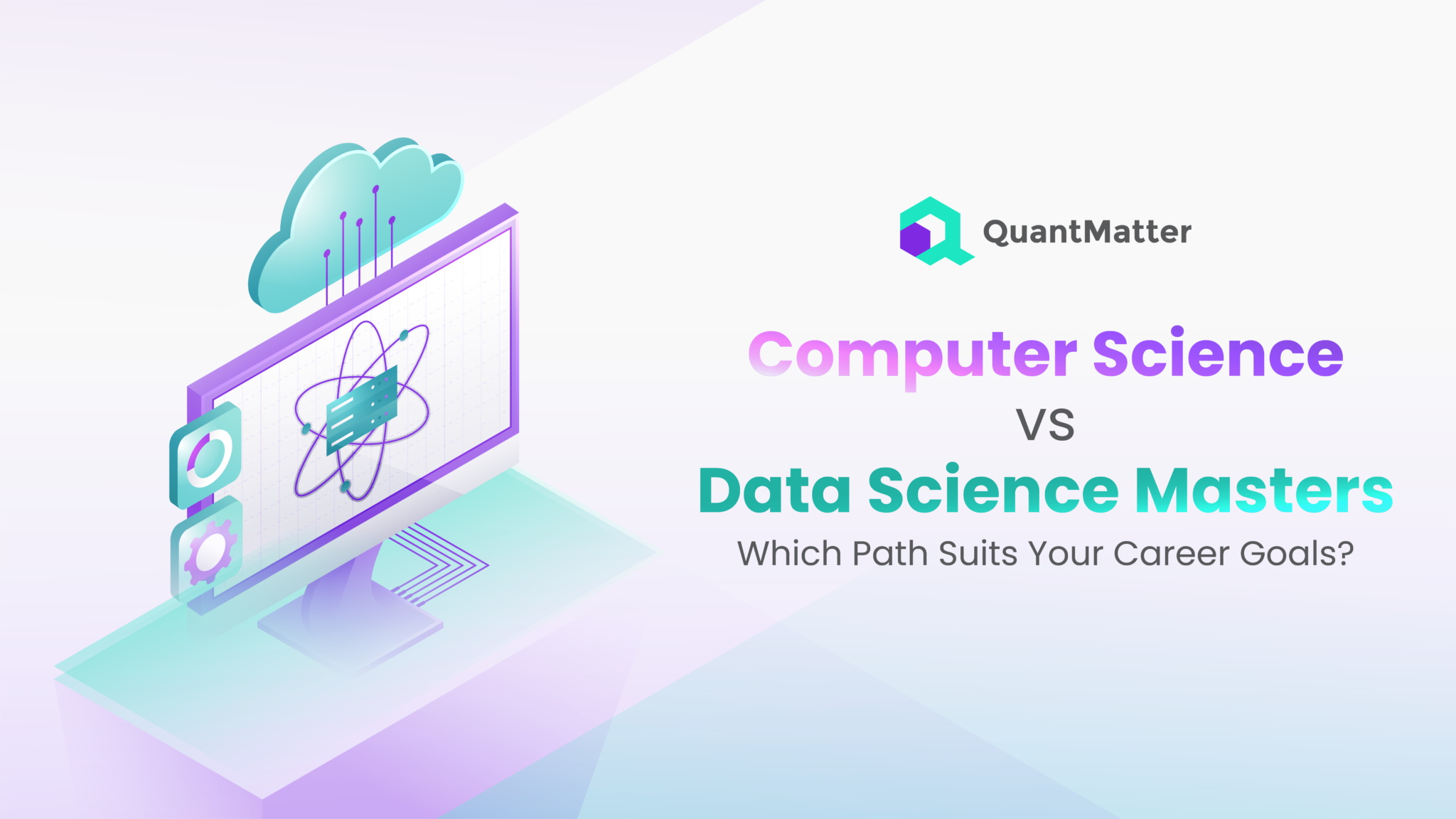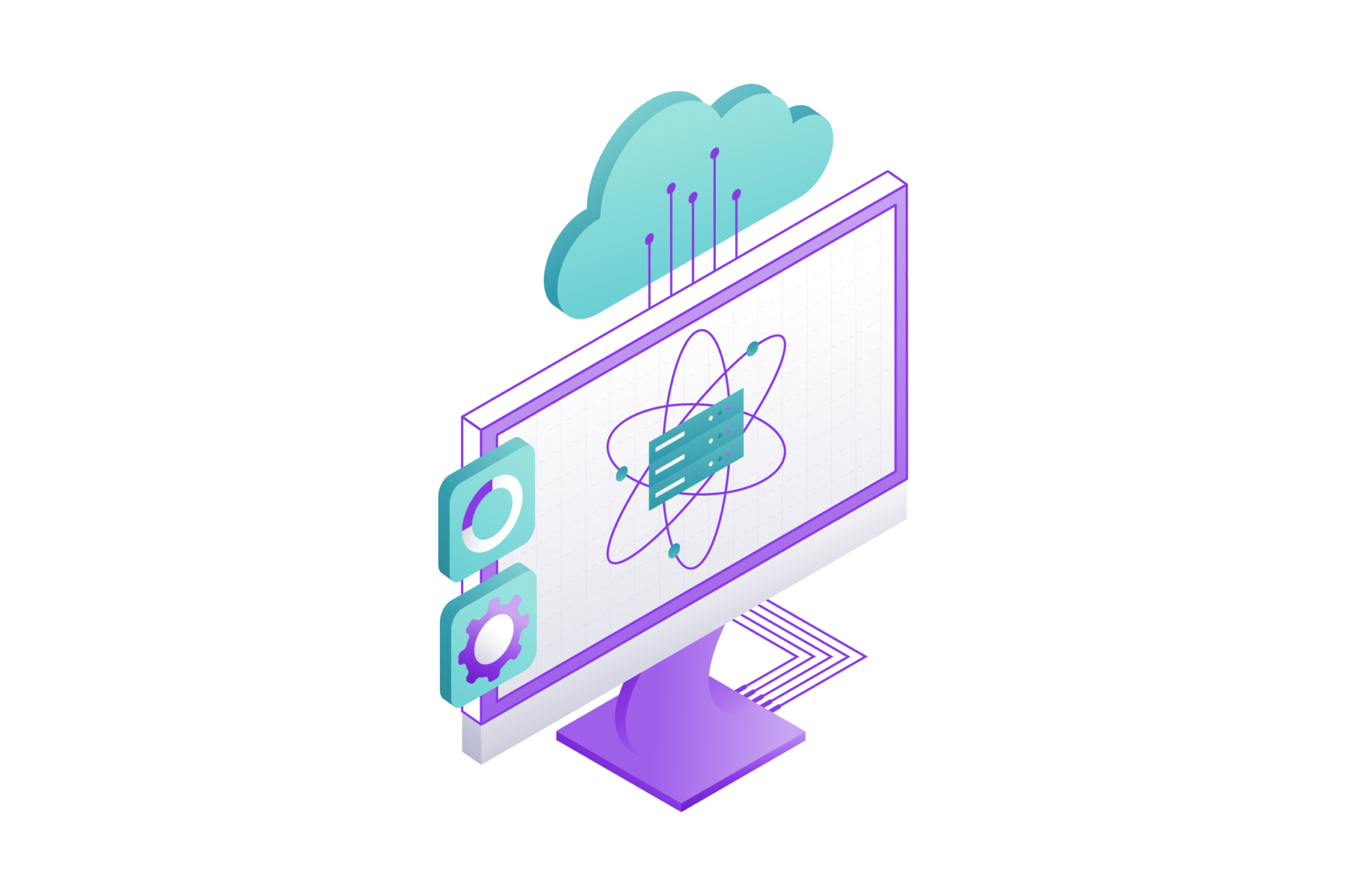
When considering a master’s degree to advance your career, two popular options often come up: computer science and data science. Both fields are critical in today’s technology-driven world, but they offer different career paths, skill sets, and opportunities. Choosing the right program depends on your interests, career goals, and the type of work you want to engage in long-term.
In this article, we’ll explore the key differences between a master’s in computer science and a master’s in data science, look at the career opportunities for graduates of each program, and help you determine which path aligns with your career aspirations.
Overview of a Master’s in Computer Science

A master’s in computer science is designed to give students an advanced understanding of the principles and technologies that underlie computer systems. The program usually covers topics like algorithms, software development, machine learning, networking, databases, and system security. It prepares students to become experts in solving complex technical problems, developing software applications, and building infrastructure that supports the modern digital landscape.
Students in this program often have the flexibility to specialize in areas such as artificial intelligence, cybersecurity, human-computer interaction, or cloud computing. These specializations allow students to dive deeper into specific areas of interest while gaining a broader understanding of computer systems.
Also read: Quant Trader vs Quant Researcher: What’s the Difference?
A master’s in computer science is well-suited for individuals with a strong background in programming and mathematical problem-solving. It equips graduates with the tools they need to create cutting-edge technologies and design solutions that improve processes across various industries. The program typically requires 1.5 to 2 years of full-time study, with some offering part-time or online options for working professionals.
Overview of a Master’s in Data Science

A master’s in data science focuses on teaching students how to extract valuable insights from large and complex datasets. This program integrates elements of computer science, statistics, and business to provide students with the skills needed to analyze data and solve real-world problems using a data-driven approach. Students typically study areas such as machine learning, data mining, statistical analysis, data visualization, and big data technologies.
In a data science program, students often learn how to use programming languages like Python or R, along with tools such as SQL for database management and Hadoop or Spark for processing large datasets. Beyond technical skills, data science students are also trained in understanding how to interpret data in a business or research context, enabling them to make informed decisions that drive results.
This degree is ideal for those who are interested in working with data, whether to drive business strategies, contribute to scientific research, or develop intelligent systems that rely on data for decision-making. Like computer science, a master’s in data science usually takes around 1.5 to 2 years to complete, with online and part-time options becoming more common.
Core Differences Between Computer Science and Data Science Master’s Programs

While both computer science and data science programs focus on leveraging technology to solve problems, the core differences lie in the skills and knowledge areas they emphasize.
Focus Areas
A master’s in computer science offers a broader understanding of the principles and mechanics behind computing technologies. Students engage deeply with the theoretical underpinnings of computer systems, studying areas such as algorithm design, computational theory, systems architecture, and advanced programming techniques. These programs encourage students to explore complex problem-solving approaches that form the foundation of all computer-based technologies.
Graduates of these programs are equipped with the skills to build and optimize software systems, create new programming languages, or develop highly efficient algorithms that can be applied across a variety of industries. A strong emphasis is placed on understanding how the inner workings of computers, from low-level hardware interaction to high-level software design, can be leveraged for technological innovation. This comprehensive approach gives graduates the ability to contribute to advancements in fields like cybersecurity, artificial intelligence, and cloud computing.
In contrast, a master’s in data science hones in on data-related tasks, emphasizing the skills necessary for handling, analyzing, and extracting meaningful insights from massive datasets. The focus here is not just on the mechanics of working with data but on the ability to interpret it in ways that drive decisions and inform strategic direction in industries such as finance, healthcare, marketing, and more. Students are taught how to use data to find patterns, predict outcomes, and generate actionable insights.
The curriculum prioritizes subjects like statistical modeling, machine learning, data mining, and data visualization. Graduates of data science programs often become experts in applying advanced statistical techniques to large datasets, utilizing machine learning algorithms to predict trends, and creating data visualizations that help stakeholders make informed decisions. This specialized knowledge makes them indispensable in data-driven roles where understanding and acting on information quickly is critical for success.
Curriculum Structure
The curriculum structure in a computer science master’s program is heavily grounded in theoretical concepts that underpin all computing technologies. Students can expect to engage in courses that cover a wide array of topics, from systems architecture to advanced algorithmic theory, which serve as the bedrock for building and understanding computer technologies at all levels. For instance, courses in software engineering teach students to design, develop, and manage complex software systems, while database management and operating systems courses equip them with the skills to optimize data storage and system performance.
Theoretical subjects, such as computational theory and discrete mathematics, are often emphasized to help students develop an in-depth understanding of the limitations and possibilities of algorithms. This academic rigor ensures that graduates have the ability to solve abstract computing problems that are essential to technological innovation. Additionally, many programs offer elective courses that allow students to specialize in specific areas, such as artificial intelligence, robotics, or quantum computing.
On the other hand, the curriculum for a data science master’s program focuses more on the practical application of tools and techniques for data manipulation and analysis. While data science students also need strong mathematical foundations, particularly in areas like linear algebra, calculus, and probability theory, they spend the majority of their time learning applied methods. Courses often include practical exercises with programming languages and tools commonly used in the field, such as Python, R, SQL, and frameworks like Hadoop or Spark.
Also read: How to Get Started with Quant Computer Science
Students learn to work with data at scale, handling large datasets efficiently and applying algorithms to process and analyze data. Machine learning and artificial intelligence play a significant role in the curriculum, with students building models to predict trends, detect anomalies, and make data-driven decisions. Visualization techniques are also emphasized, teaching students how to present complex data in a manner that is easily understood by non-technical stakeholders. As such, data science programs are designed to develop not only technical proficiency but also the ability to communicate insights effectively.
Career Preparation
Graduates of computer science master’s programs are well-prepared for roles that require an in-depth understanding of computing systems, software design, and systems engineering. With their comprehensive knowledge of how computers function at both a hardware and software level, they are suited for careers in software development, network security, systems architecture, and research-oriented roles that involve pushing the boundaries of computing.
Their training enables them to take on positions as software engineers, where they can create innovative applications or design the infrastructure needed to support modern digital ecosystems. Systems engineers, another potential career path, are responsible for the integration and maintenance of complex systems that are crucial to business operations. Additionally, many computer science graduates pursue roles in academia or research institutions, where they contribute to the development of new technologies and explore cutting-edge areas such as quantum computing, blockchain, and artificial intelligence.
In contrast, data science master’s graduates are uniquely positioned for careers that revolve around working with data to derive meaningful insights that influence business, scientific, or social outcomes. These graduates often pursue roles such as data analysts, machine learning engineers, and data engineers. Data analysts focus on interpreting data to provide actionable insights, often working closely with decision-makers to inform business strategy, marketing campaigns, or operational improvements.
Machine learning engineers, on the other hand, design and implement algorithms that allow computers to learn from and make decisions based on data, making this a particularly valuable role in industries like finance, healthcare, and autonomous systems. Data engineers focus on building and optimizing the infrastructure that allows data to be collected, stored, and processed at scale, ensuring that organizations can effectively utilize their data resources. Data science professionals are in high demand across sectors, as organizations increasingly rely on data-driven decision-making to stay competitive in a rapidly changing landscape.
Career Prospects for Computer Science Master’s Graduates
A master’s in computer science opens doors to a wide range of high-demand careers in various industries. Graduates of these programs are well-equipped to tackle technical roles that involve designing, building, and maintaining software systems, as well as solving complex computational problems.
Software Development and Engineering
One of the most common career paths for computer science graduates is software development. Whether developing applications, systems, or embedded software, the demand for skilled software engineers continues to grow. Master’s graduates are often sought after for senior or specialized roles, particularly in companies that need scalable, efficient software solutions.
System Architecture and Network Engineering
Another career path is system or network architecture, where graduates design the infrastructure that supports the software and hardware of large organizations. These roles are critical for ensuring that systems operate efficiently, securely, and can scale with growing business needs. Graduates in these roles may also work on cloud infrastructure or cybersecurity solutions.
Artificial Intelligence and Machine Learning
As machine learning and AI become increasingly prevalent, many computer science graduates find themselves working on advanced algorithms and intelligent systems. With a strong foundation in algorithm design and computational theory, computer science graduates can work in developing AI systems for industries such as healthcare, finance, and technology.
Research and Development
For those with an interest in academic or cutting-edge technological research, a master’s degree can lead to roles in R&D departments. This could include work on developing new algorithms, enhancing cybersecurity protocols, or improving the efficiency of computational systems.
With a master’s in computer science, graduates have flexibility in choosing a career path in many fast-growing fields that prioritize innovation and technical expertise. As the technology sector continues to expand, the demand for computer science professionals remains robust.
Career Prospects for Data Science Master’s Graduates
A master’s in data science equips graduates with the skills to excel in a rapidly expanding field where data-driven decision-making is at the forefront of innovation. As organizations across industries seek to leverage big data, the demand for skilled data professionals continues to rise.
Data Scientist
One of the most sought-after roles for data science graduates is that of a data scientist. These professionals analyze large datasets to identify trends, patterns, and insights that can help businesses make informed decisions. Data scientists work across industries such as finance, healthcare, retail, and technology, providing valuable insights that shape strategies and improve operational efficiency.
Machine Learning Engineer
Graduates with expertise in machine learning often pursue roles as machine learning engineers. In this role, they develop algorithms that allow machines to learn from data and improve over time without human intervention. This is particularly relevant in industries developing AI products, autonomous systems, or personalized recommendations, such as e-commerce, tech, or entertainment.
Also read: 21 Best Crypto Market Makers in 2024
Data Engineer
Data engineers focus on building the architecture that enables organizations to collect, process, and store data efficiently. They design, maintain, and optimize the databases and systems that manage vast amounts of information. With businesses increasingly relying on data, skilled data engineers are crucial in ensuring that data is accessible and secure.
Business Intelligence Analyst
For those interested in the intersection of data and business, the role of a business intelligence (BI) analyst may be a good fit. BI analysts use data to provide insights that help companies optimize operations, improve products, or enhance customer experiences. They often work closely with leadership teams to interpret data in a way that directly informs decision-making and strategy.
Data Analyst
A data analyst is a more entry-level role where professionals work with data to answer specific questions, generate reports, and present findings in a meaningful way. While more common as an entry point, data analysts play a key role in many industries, helping organizations to analyze market trends, customer behavior, or operational performance.
With the increasing importance of data in modern business, data science graduates are well-positioned to find lucrative and impactful careers. The flexibility of the degree allows graduates to work in various industries, from tech startups to large corporations.
Conclusion
Choosing between a master’s in computer science and a master’s in data science ultimately depends on your career goals, interests, and the type of work you envision doing in the future. Both fields are growing rapidly and offer exciting opportunities, but they cater to different skill sets and professional pathways.
A master’s in computer science is ideal for those who want to develop a deep understanding of computing systems, software engineering, and algorithms. It prepares graduates for careers in software development, systems architecture, cybersecurity, and other areas that require technical problem-solving and programming expertise. If you’re passionate about building systems, designing software, or working with cutting-edge technology, this degree can set you on the path toward innovation in the tech world.
On the other hand, a master’s in data science is perfect for individuals who are fascinated by data and its potential to uncover insights that drive business or research decisions. Data science graduates can work as data scientists, analysts, or machine learning engineers, applying statistical and computational methods to solve real-world problems. If you enjoy working with data, interpreting trends, and building models that predict outcomes, data science might be the best fit for you.
Both degrees offer high earning potential and strong job prospects, but the choice comes down to whether you prefer to work with the technical aspects of computing or focus on extracting value from data. Take the time to assess your strengths, interests, and career aspirations to decide which path will lead you toward achieving your professional goals.
Disclaimer: The information provided by Quant Matter in this article is intended for general informational purposes and does not reflect the company’s opinion. It is not intended as investment advice or a recommendation. Readers are strongly advised to conduct their own thorough research and consult with a qualified financial advisor before making any financial decisions.

Joshua Soriano
As an author, I bring clarity to the complex intersections of technology and finance. My focus is on unraveling the complexities of using data science and machine learning in the cryptocurrency market, aiming to make the principles of quantitative trading understandable for everyone. Through my writing, I invite readers to explore how cutting-edge technology can be applied to make informed decisions in the fast-paced world of crypto trading, simplifying advanced concepts into engaging and accessible narratives.
- Joshua Soriano#molongui-disabled-link
- Joshua Soriano#molongui-disabled-link
- Joshua Soriano#molongui-disabled-link
- Joshua Soriano#molongui-disabled-link
